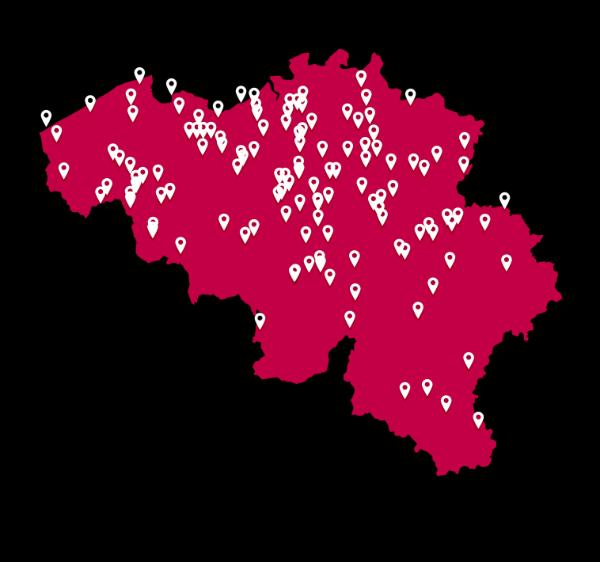
Since the June 2014 announcement of the partnership between Belfius and the European Investment Bank (EIB) aimed at supporting the development of Smart Cities in Belgium – a European first – more than 100 smart and sustainable projects, particularly those helping to combat global warming and contributing to the emergence of a circular economy, have benefited from the support and favourable financing terms provided by the two institutions. The amount provided so far totals EUR 660m, including EUR 260m as part of the second programme (Smart Cities, Climate Action & Circular Economy) launched just ten months ago. This is a remarkable result that clearly shows that the Smart Cities initiative is in full swing across Belgium, even reaching the smallest municipalities.
On 4 June 2014, Belfius and the EIB decided to jointly provide EUR 400m to Belgian local authorities to help them implement their smart and sustainable projects in the areas of mobility, urban development and energy efficiency. The EIB and Belfius would each provide half of the funds. The aim was to reduce the cost of the loan as much as possible with the favourable terms of EIB funding, thereby turning the Smart Cities programme into the new standard for building the cities and municipalities of the future.
Over two and a half years, the first programme (Smart Cities & Sustainable Development) made it possible to finance 62 projects, benefiting more than 1.4 million people. Buoyed by this success and in order to meet demand, in late 2016 Belfius and the EIB committed to releasing an additional EUR 400m to finance, support and assist more smart projects from cities and municipalities, inter-municipal groupings and CPAS (Public Social Action Centres), as well as education and health care sector organisations and institutions.
Smart Cities, Climate Action & Circular Economy: 40 projects already funded to the tune of EUR 260m
The scope of this new programme, dubbed Smart Cities, Climate Action & Circular Economy, has therefore been widened to encompass the education and health care sectors, and aims to make investments “circular” in nature. It covers not only energy performance, mobility and urban development, but also water (distribution networks, sewers, drainage, treatment), waste (selective collection, sorting, biological treatment and sludge treatment, energy production) and e-government (particularly open data). In addition to an integrated, innovative and sustainable approach, the circular economy and climate action are specific focal points of project appraisal and evaluation.
In just ten months, 40 projects have benefited from this second programme for a total amount of EUR 260m. The first project to be implemented was inaugurated in Flémalle, Liège Province, at the beginning of September, and comprised the energy-efficient refurbishment of an RTG-type (non-insulated prefabricated building) municipal school.
2 million people across the country
Local authorities can play a major role in combating global warming and developing the circular economy, particularly by setting an example and thereby encouraging companies, individuals and other organisations to fully take part in the Europe 2020 strategy for smart, sustainable and inclusive growth. A number of Belgian cities and municipalities have already taken the first step by signing the Covenant of Mayors, committing to voluntarily reducing the CO2 emissions in their area. Belfius and the EIB intend to support them as much as possible in this initiative with their joint Smart Cities, Climate Action & Circular Economy and Smart Cities & Sustainable Development programmes.
102 projects have so far been granted a loan under these programmes. These projects, which are currently in progress or already complete, concern a total of more than 2 million people and come from local authorities, CPAS, inter-municipal groupings, provincial institutions, etc.

Photographer: Sabine Parisse ©EIB
Download original